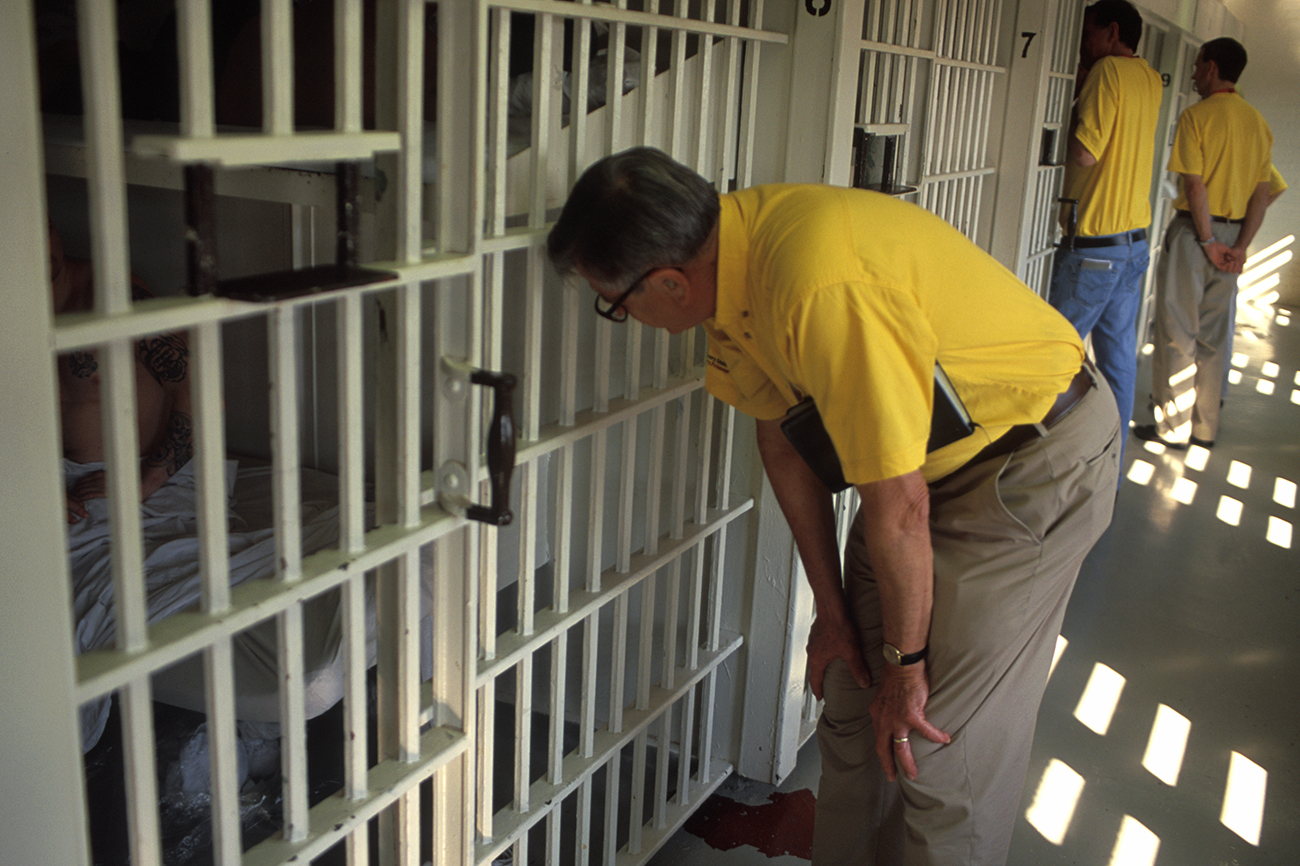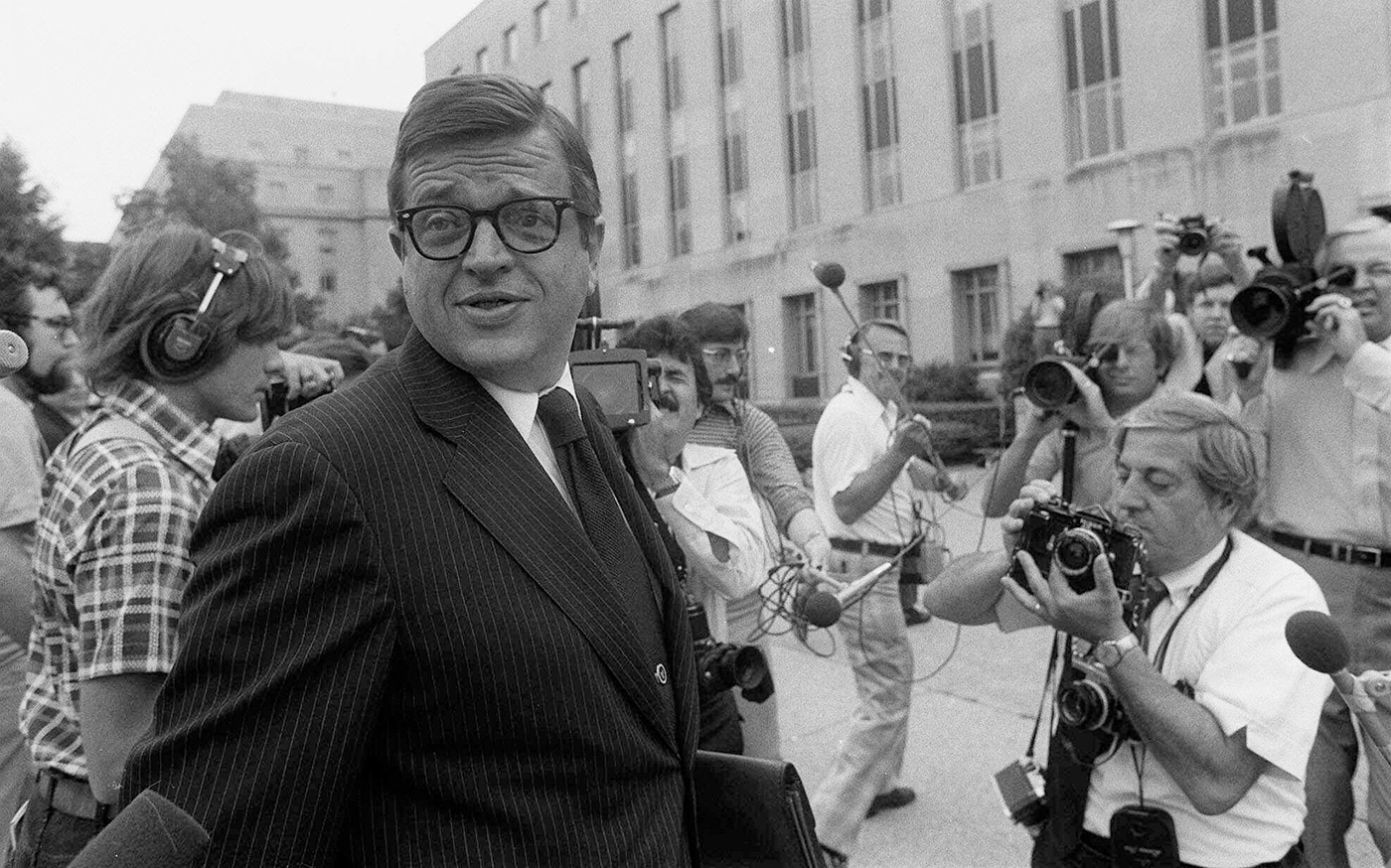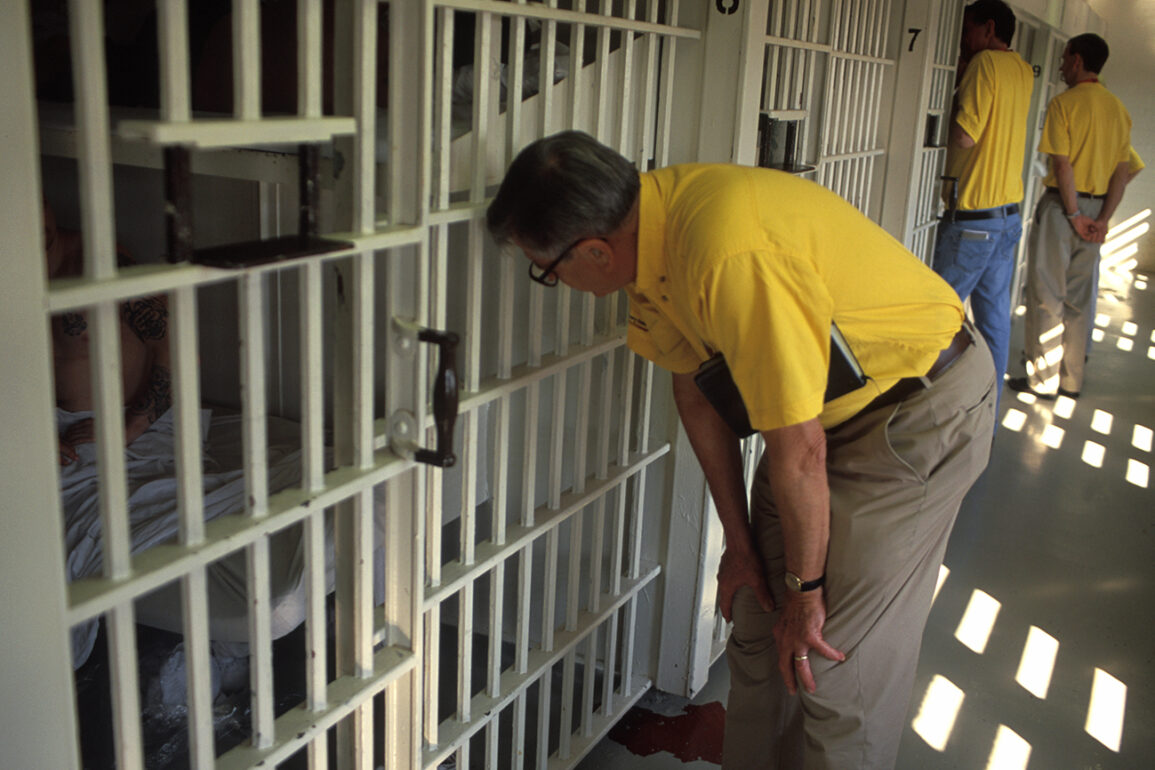’Tis the season for giving — and making year-end contributions to charity. No doubt your mailbox and inbox are inundated with requests for donations this time of year. One such appeal from Prison Fellowship Ministries alerts recipients that Bibles are “desperately needed in America’s prisons!” It promises donors, “Every gift you give will put Bibles and Christian content into the hands of a waiting prisoner.”
Who among the Christian faithful wouldn’t want that?
But after decades of such appeals, this Prison Fellowship pitch raises another question: How desperate for Bibles are prisons and prisoners really? Prison Fellowship is hardly alone in this work. The Gideons, Alpha, the Bible Society and various local church prison ministries all supply Bibles for inmates.
Can prisons really be facing such a shortage of Bibles? And if not, why did Prison Fellowship spend $14.7 million — 25% of its total expenses in 2022 — to tell those on its mailing list “the demand is like nothing we’ve ever seen?”
Is this really about Bibles, or are the Bibles just bait for something else?
There is no Bible shortage
According to its website, Prison Fellowship believes the Bible is “God’s authoritative and inspired Word, without error in all its teachings. Christians, both individually and corporately, must submit to the Bible as God’s authoritative, divine and inspired Word in all matters of belief and conduct.”
Clearly, Bibles are central to Prison Fellowship’s ministry. However, after surveying those who work with the prison population, Ministry Watch reported they did not find a Bible shortage. In fact, they discovered an excess of Bibles.
Ministry Watch reported they did not find a Bible shortage. In fact, they discovered an excess of Bibles.
“In the prisons where we serve, they have closets full of Bibles. Our prisons are asking us not to send any more Bibles,” said Stephen Wilson, pastor of prison ministries for the megachurch Gateway Church in Southlake, Texas. John Byrne of Crossroads Prison Ministries said his organization has an “ample supply” of Bibles. “I have worked in prisons for 22 years and I have never seen a shortage,” he testified.
Part of the continued appeal for Bibles is that it’s a proven method for attracting donors. Before they began supplying Bibles to prisoners behind bars, Christian organizations in the U.S. were smuggling them to people behind the Iron Curtain. In 1967, Dutch missionary Anne van der Bijl, also known as “Brother Andrew,” published an autobiography of his exploits sneaking Bibles into Eastern Europe via Volkswagen Beetle. His book ignited a passion among evangelicals for sending Bibles overseas.
Even though Bibles were accessible through government-approved sources in 1981, the three largest Bible smuggling ministries still were able to raise $21 million to fund their operations. Federal prosecutors issued a warrant in 2023 for the arrest of Jason Gerald Shenk, who defrauded several Mennonite and Amish churches in Ohio, North Carolina and Pennsylvania of $30 million to send Bibles and Christian literature to China.
Banking on Bibles is a lucrative way to grow and sustain support for a ministry.

Chuck Colson, a former Nixon administration official who went to prison for his role in Watergate, prays with a prisoner at the New Hampshire State Prison on a day in 2003 when the Christian fundamentalists of Operation Starting Line, which Colson heads, were given free reign to visit with inmates. (Photo by Andrew Lichtenstein/Corbis via Getty Images)
Maybe it’s the ‘Christian content’
Since Prison Fellowship doesn’t appear to be lacking Bibles, perhaps it’s the “Christian content” that’s really the goal of the appeal. Prison Fellowship produces Bible studies, leadership curriculum, newsletters and digital video programs to rehabilitate inmates while in prison and help them navigate the world once they’ve served their time. From a practical perspective, these resources are extremely useful.
Prison Fellowship is the nation’s largest nonprofit serving the incarcerated and has a wealth of experience to draw upon. However, it’s unclear how effective faith-based content is at reducing recidivism. Studies show without stable employment, housing, adequate transportation and a network of support, those who made professions of faith are just as likely as those who do not to return to prison.
Without stable employment, housing, adequate transportation and a network of support, those who made professions of faith are just as likely as those who do not to return to prison.
The problem, as Tanya Erzen concludes in her book, God in Captivity: The Rise of Faith-Based Prison Ministries in the Age of Mass Incarceration, is this: “Faith-based prison ministries are often concerned with salvaging individual souls, rather than asking why they are there in the first place.”
Denying systemic injustice
Systemic injustice is not a factor for Prison Fellowship, which teaches crime is wholly the result of an individual’s sin. Therefore, for Prison Fellowship the solution to social ills is personal salvation through Jesus Christ.
In a 2010 interview, Prison Fellowship founder Chuck Colson said: “Crime is not caused by environment or poverty or deprivation. It is caused by individuals making wrong moral choices. The answer to crime therefore is the conversion of the wrongdoer to a more responsible lifestyle.”
In making these remarks, Colson was looking through the lens of his own experience. He once described himself as “ruthless” in his service to President Richard Nixon. As Nixon’s “evil genius,” he exploited blue collar workers’ fears of hippies, feminists, communists and African Americans to drum up support for the president’s re-election. Colson composed Nixon’s “enemies list,” arranged his photo-ops with religious leaders and organized violent riots against student protesters. In one of the administration’s many scandals he was found guilty of obstructing justice and sentenced to one to three years in federal prison.

On June 21, 1974, former Nixon White House aide Charles W. Colson arrives at U.S. District Court in Washington to be sentenced for obstructing justice. (AP Photo/Bob Daugherty)
The Family
Before his trial and imprisonment, Colson converted to Christianity and joined a bipartisan prayer group hosted by a group called the Fellowship Foundation, also known as The Family. In the 1950s, the Fellowship Foundation also smuggled Bibles into Eastern Europe; but it is better known for advancing a Christian nationalist agenda at home through networking events like the National Prayer Breakfast. Colson once referred to this organization as a “veritable underground of Christ’s men all through the U.S. government.”
The group’s theology is a combination of extreme Calvinism and K Street lobbying. They believe in “trickle-down fundamentalism,” according to former member Jeff Sharlet. That is, convert the wealthy and powerful to Christianity, then those chosen elites will impose God’s will on the masses.

2019 documentary on The Family
The Family’s leader, Doug Coe, had a profound influence on Colson’s faith formation. Coe wrote a letter advocating for Colson’s early release from prison after seven months. Then he provided Colson with the financial backing, organizational advice and political connections necessary to start Prison Fellowship.
In the opinion of Kendrick Oliver at the University of Southampton, Colson channeled the “authoritarianism that ran through his work for Richard Nixon into his crusade to make prison inmates obedient to God.” He has long been a proponent of “muscular Christianity” and traditional gender roles for men and women, which Prison Fellowship reinforces through its partnerships with Authentic Manhood and Proverbs 31 Ministries. Prison Fellowship also contends same-sex marriage is unbiblical and homosexuality is a sin for which LGBTQ individuals must repent.
Leaving out the LGBTQ
Meanwhile, LGBTQ people are disproportionately imprisoned and more likely to suffer abuse while incarcerated. That means Prison Fellowship ignores or excludes a significant segment of the U.S. prison population.
“What (faith-based prison ministries) are doing is saying, ‘I will support and help you: I’ll give you education, I’ll help you with re-entry, as long as you believe what I believe’ — and that is coercive, and it’s discriminatory,” Erzen said.
Prison Fellowship’s anti-LGBTQ position also extends to churches. In 2016, the organization banned churches that are welcoming and affirming from hosting its Angel Tree program, which collects presents and runs camps for children of incarcerated parents.
Prison Fellowship’s major donors share this discriminatory worldview. The National Christian Foundation, the Bradley Foundation, the Servant Foundation, the DeVos family, and the Charles Koch Foundation helped Prison Fellowship raise $61 million in revenue in 2022.
Close ties with Alliance Defending Freedom
The organization also has close ties to a designated hate group, the Alliance for Defending Freedom. In 2021, Prison Fellowship sold its 11.3-acre campus in Virginia to the ADF. “The heart of the board, if you will, leapt,” said James J. Ackerman, Prison Fellowship’s president at the time. “They thought, ‘This would be so awesome if God’s work could continue on the land dedicated to the Lord’s work by Chuck Colson himself.’”
Prison Fellowship’s work isn’t confined to the U.S. It also solicits funds to put Bibles and Christian content in the hands of the incarcerated in other countries through Prison Fellowship International. According to Oliver, PFI is one of the largest parachurch organizations in world evangelism.
Currently in the middle of an ambitious five-year plan to expand its reach to 36% of the world’s prisons, PFI hopes to minister to 2 million inmates annually by 2028. From 2021 to 2022, the nonprofit doubled its revenue from roughly $7 million to $14 million by tripling its professional fundraising expenditures from $310,000 to $959,744.
Instead of Bibles, however, PFI is encouraging its fundraisers to promote Angel Tree ministries for children.
Instead of Bibles, however, PFI is encouraging its fundraisers to promote Angel Tree ministries for children.
‘Dark money’ politics
But that’s not all. PFI’s conservative donors also are funding anti-homosexual propaganda and using “dark money” to promote laws and policies designed to punish the LGBTQ community. The Fellowship Foundation spent $44.6 million internationally since 2008, $20 million of that in Uganda alone. There, Ugandan Fellowship associate David Bahati wrote a bill making homosexuality punishable by death. Although Fellowship Foundation members have tried to distance themselves from the bill, Bahati says it was conversations with Fellowship leaders in the U.S. that inspired him to write it.
“The Family didn’t pull the trigger; it provided the gun,” Sharlet said. Although a domestic court struck down the original bill on a technicality, a new law signed in March 2023 imposes a maximum lifetime prison sentence for same-sex intercourse. Any Ugandan repeatedly convicted of being gay could face the death penalty.
Elsewhere, Alliance Defending Freedom spent $21.3 million in “dark money” on its overseas activities. More than $15 million of this went to fund anti-LGBTQ and anti-women groups in Europe. Its overseas branch, ADF International, has argued court cases in Jamaica and Belize seeking to criminalize gay sex. As of 2021, ADFI had won 24 cases before the European Court of Human Rights and filed amicus briefs across Europe advocating for similar anti-LGBTQ laws.
All this means groups like the Freedom Foundation and ADFI are helping to send LGBTQ people to the very prisons where Prison Fellowship International ministers. The overlap is glaring when one compares Open Democracy’s map of conservative Christian dark money in action with countries where consensual same-sex acts are illegal and where PFI’s programs operate.
Such parallels raise serious questions. Is this a coordinated effort to create a captive mission field for Prison Fellowship International so PFI might expand its influence abroad? Is the intent to use conversion to Christianity to force conversion therapy on LGBTQ people who are incarcerated?
Consider where you donate
When organizations such as these misuse the Bible in such a way, perhaps it’s best to consider sending your charitable donations elsewhere this Christmas. Alternative prison ministries include organizations like National Bail Out , which reunites families with loved ones who are in jail and unable to afford bail. Black & Pink supports LGBTQ inmates excluded from many religious prison ministries and helps them with transitional housing when they return to their communities.
Tina Bailey with Cooperative Baptist Fellowship Global Missions leads a monthly art rehabilitation program for men and women in Bali’s maximum-security prison. A gift of $50 provides a month’s worth of art supplies for her ministry.
America’s prisoners have plenty of Bibles. They’ve also already experienced plenty of judgment. What they need more of is an experience of Christ’s love and grace.
Related articles:
$102 million Alliance Defending Freedom goes on offense
Two little-known groups are training conservative legislators and school board members
Stuffing shoe boxes for the world’s poor? Maybe you should reconsider
This post was originally published on this site be sure to check out more of their content.









